Here is a special bonus edition of Shero in honor of Kurt Volker’s testimony before Congress today in the impeachment inquiry against Trump. It provides information on all of the significant players so far in the Trump Ukraine scandal, and it might be helpful to refer to as we get testimony from other State Department officials throughout October. For a comprehensive timeline of the Trump Ukraine Scandal and the relevant background events, you can also read: “Complete Timeline of Trump Ukraine Scandal.”
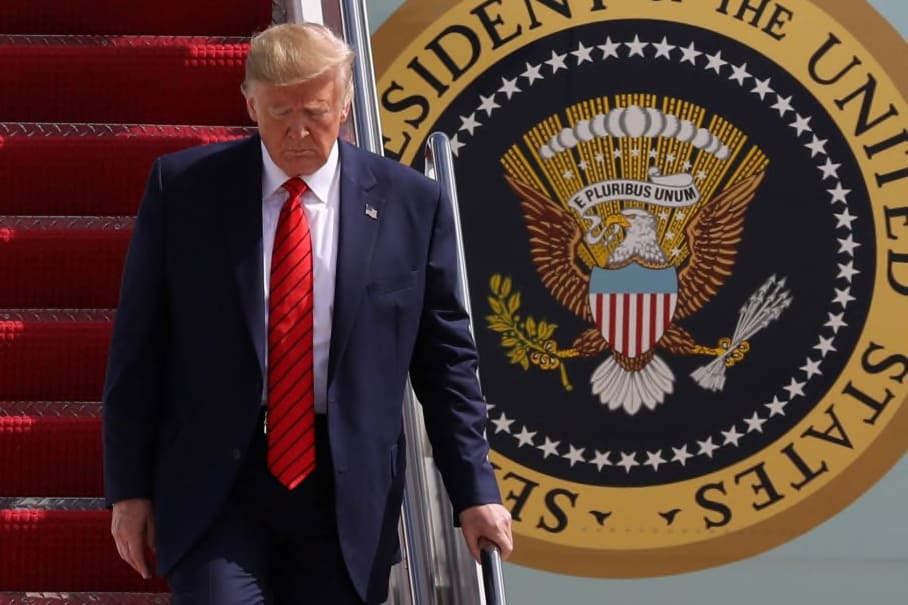
Ukraine
Petro Poroshenko: Former Ukrainian president who appointed Yuri Lutsenko as prosecutor general and is accused of ending a criminal probe of an energy company where Hunter Biden was a board member.
Yuri Lutsenko: Ukrainian prosecutor general first appointed under then-President Petro Poroshenko and Giuliani's original target to influence toward an investigation of the Bidens and Burisma. He publicly accused Ukrainian officials of interference in the 2016 U.S. presidential election, claiming they were trying to help the Democrats. Lutsenko also alleged that former Vice President Joe Biden had pressured former Ukrainian President Poroshenko to close a purported criminal probe of an energy company where Biden’s son Hunter was a board member in order to help Biden. He resigned in August. Giuliani has relied on his previous claims that Ukraine interfered in the election to bolster his argument for another investigation into Biden and to justify Trump’s actions.
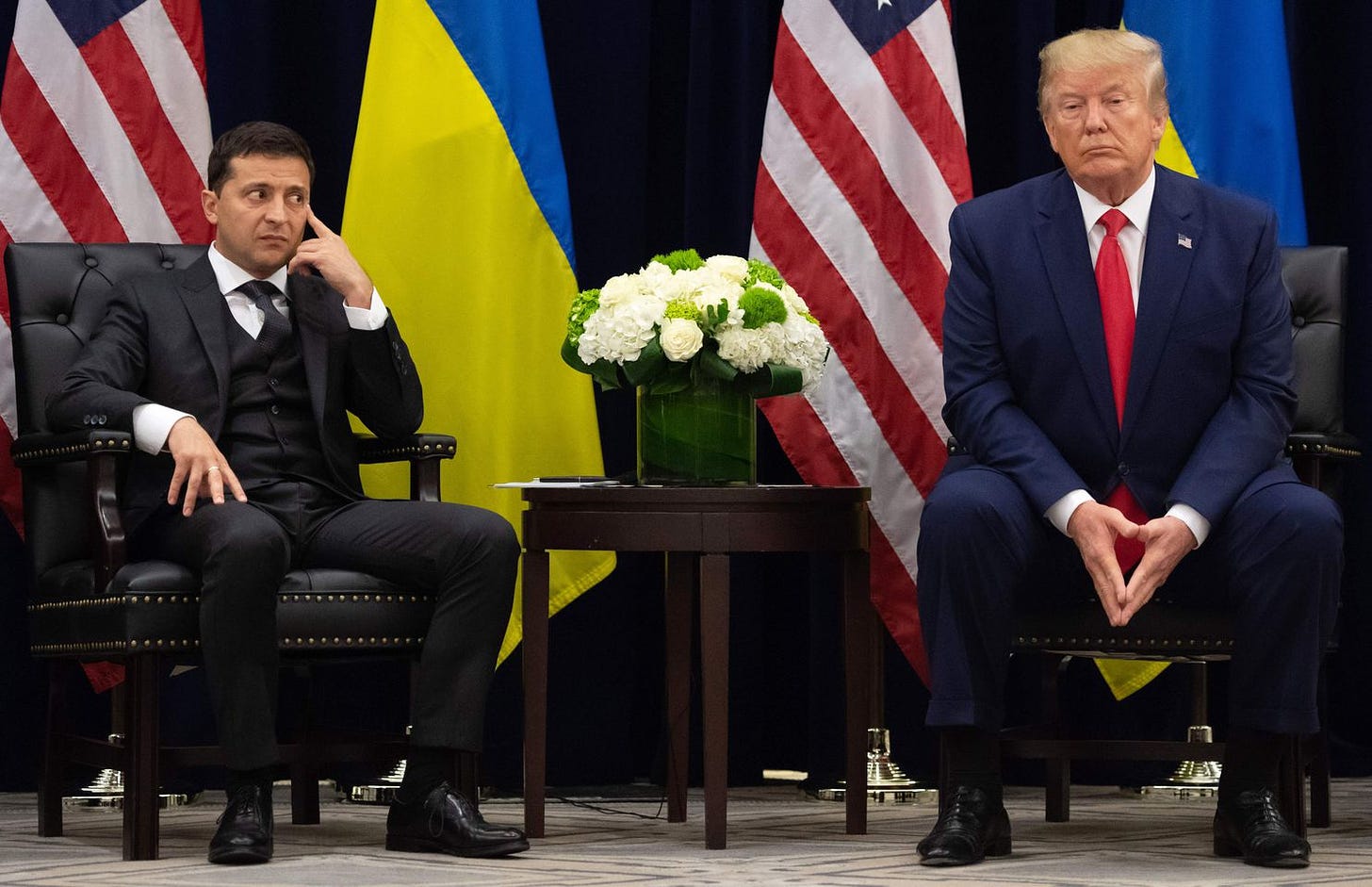
Volodymyr Zelensky: Current Ukrainian president, who held a July 25 phone call with Trump in which the U.S. president requested investigations of 2016 election interference and alleged wrongdoings of the Biden family. Before becoming President of Ukraine, Zelensky was a comedian who actually played the President of Ukraine on television, and he ran on an anti-corruption platform and won by a landslide. Zelensky is managing a years-long standoff with Russia over Crimea and a war against pro-Russian separatists. His need to obtain military aid on behalf of his country is unquestionable and as a likely result, he flattered Trump during their phone call on July 25 by promising to look at the Biden family when Trump pushed for a full investigation.
Viktor Shokin: Former Ukraine prosecutor general, named Ukraine's top prosecutor under former Ukrainian President Petro Poroshenko in 2015. Shokin was seen as unwilling to prosecute certain cases of corruption against powerful and elite Ukrainians. In order to assist the Ukraine in combating active corruption by government officials such as Shokin, former Vice President Biden, acting on behalf of President Obama, helped to negotiate his removal. This pressure by the Obama Administration is what Trump has focused on with regard to claiming Biden acted inappropriately, despite no real evidence.
Andriy Yermak: Current aide and top adviser to President Zelensky. Yermak was the Ukrainian official who met with Giuliani in Madrid a week after Trump's call with Zelensky. According to the whistleblower complaint, various U.S. officials said this meeting was a "direct follow-up" to the call with Trump.
State Department
Marie Yovanovitch: Former U.S. ambassador to Ukraine who was sworn in as ambassador to Ukraine in August 2016 and recalled in May 2019. The whistleblower alleges Yovanovitch’s term ended early because of pressure stemming from complaints by Lutsenko, the Ukrainian prosecutor, and Republicans in the US. In the phone call with Zelensky, Trump disparaged her, calling her “bad news” and saying, "she's going to go through some things."
Kurt Volker: Trump Administration's point person on Ukraine and responsible for setting up meetings between Giuliani and Ukrainian officials, such as Zelensky’s aid, Yerkmak. He is referred to in the whistleblower complaint as trying to advise Ukrainian officials on how to deal with Trump and Giuliani. His official job status was as a volunteer, but he also works for BGR group, a Washington lobbying firm that has represented the government of Ukraine. Volker resigned his position on Sept. 27 and was recently subpoenaed by the three committee heads of Congress for testimony on Oct. 3.
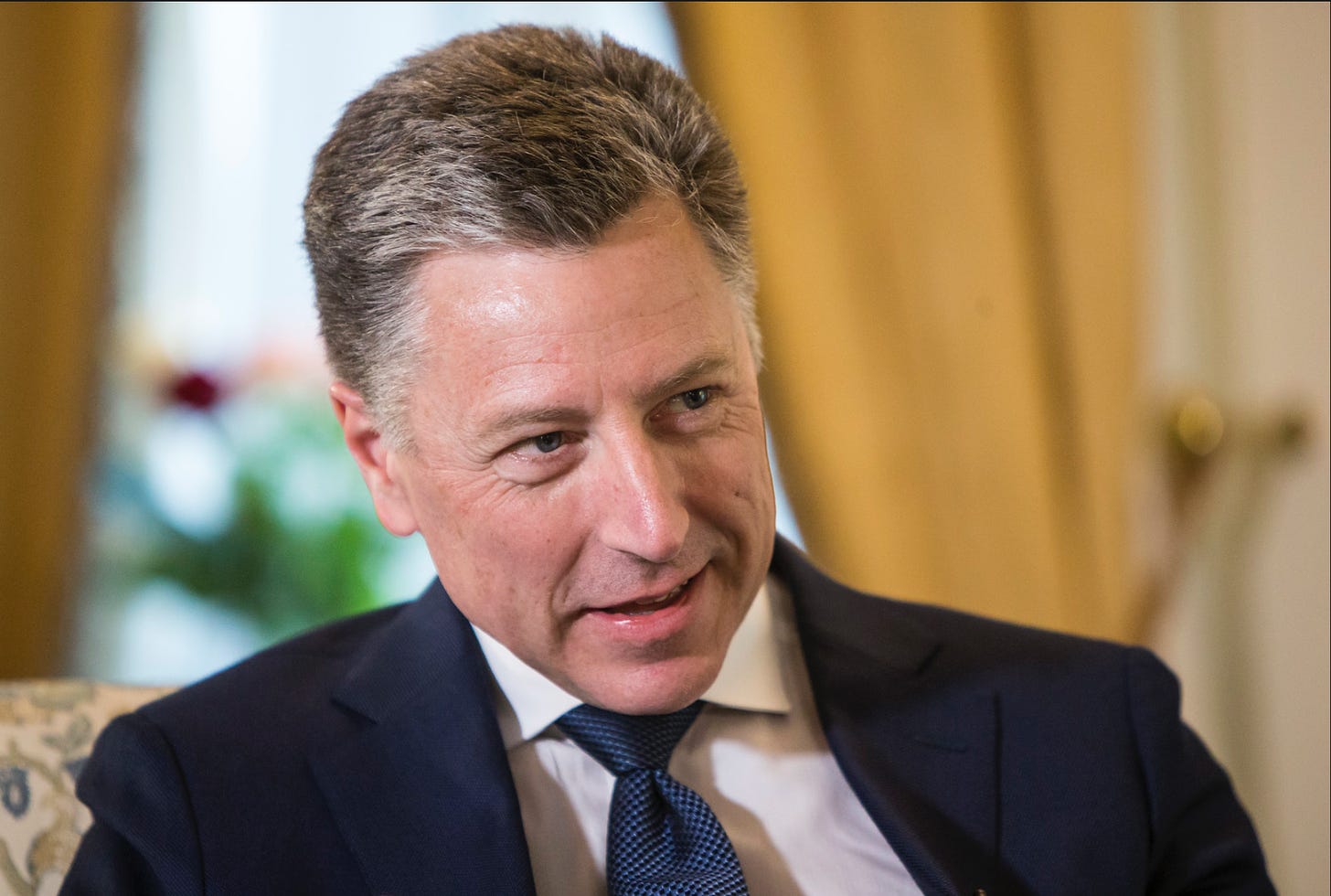
(Former United States Special Representative for Ukraine Negotiations, Kurt Volker, in Kyiv on July 24, 2017.)
Gordon Sondland: U.S. diplomat in Europe who met with Ukrainian officials first to help them navigate differing messages from Giuliani and official U.S. channels, and then again the day after the July 25 call to provide advice on handling Trump’s demands. Recently subpoenaed by the three committee heads of Congress for testimony on Oct. 10.
George P. Kent: Deputy Assistant Secretary of State in the European and Eurasian Bureau at the U.S. Department of State, who oversees policy toward Ukraine. Kent is mentioned in the whistleblower complaint, along with Volker, as an adviser to Ukrainian leadership on navigating dealings with Trump and Giuliani. Recently subpoenaed by the three committee heads of Congress for testimony on Oct. 7.
T. Ulrich Brechbuhl: Currently serves as the Counselor of the State Department to provide strategic guidance to Secretary Mike Pompeo on foreign policy. Brechbuhl is a West Point classmate and business partner of Pompeo and he is mentioned in the complaint as having listened to Trump's call with Zelensky as it occurred on July 25, even though the State Department has denied he listened in. Recently subpoenaed by the three committee heads of Congress for testimony on Oct. 8.
Trump’s Team
Donald Trump: Currently under investigation for impeachment. He pressed Ukrainian President Volodymyr Zelensky in a July 25 phone call, using his official capacity as president, to investigate 2016 election interference and alleged wrongdoings by the Biden family. Knowing that Ukraine was in a desperate state for military funding, Trump ordered nearly $400 million in military aid to Ukraine to be halted on the basis that he was concerned over ongoing issues of corruption. Staffers were instructed to give as little detail as possible on the reasoning for why the money was being withheld. When the Pentagon submitted an official report that corruption issues were improving, Trump did not follow the recommendation to release the money. Despite overwhelming bi-partisan support in Congress to immediately supply the funding to Ukraine, Trump only released the money once he knew a Congressional investigation had been launched over the allegations in the whistleblower complaint and Trump’s dealings with Ukraine.
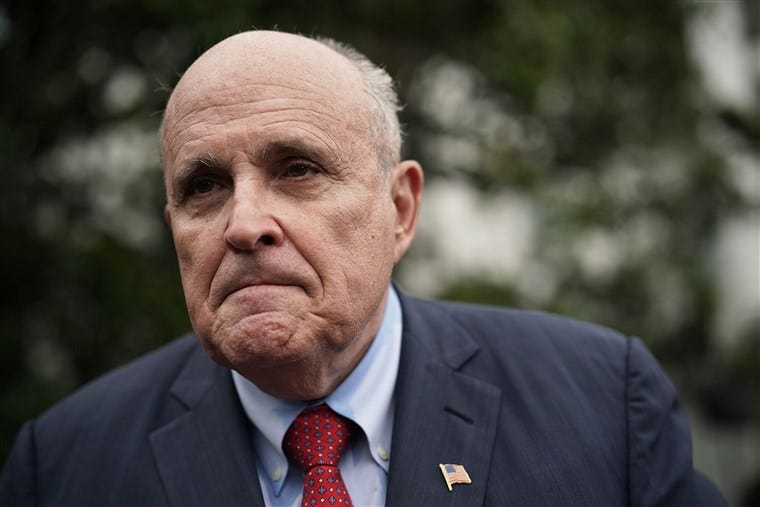
Rudolph W. Giuliani: Former mayor of New York and personal lawyer to Trump. Giuliani met multiple times with Ukrainian officials urging them to investigate claims of 2016 election interference and alleged wrongdoings by Joe Biden and his son, Hunter. Giuliani claims that Joe Biden’s actions in his capacity as Vice President were improper, as were certain actions by his son Hunter Biden, who was on the board of a Ukrainian company that had once been under investigation in Ukraine. Giuliani met with a top aide to Zelensky in Madrid, days after the July 25 phone call, presumably to further persuade the aide to convince Zelensky to assist Trump with his demands for an investigation into Biden.
William P. Barr: The current U.S. attorney general. Barr took over as head of the Department of Justice in February 2019, and oversaw the official release of the Mueller report, which investigated claims that Russia interfered with the 2016 election with the assistance of Trump and that Trump obstructed justice. Trump refers to Barr in the July 25 call with Ukrainian President Volodymyr Zelensky and encourages President Zelensky to meet with Barr to further discuss pursuing the investigations Trump is suggesting.

John Durham: Current U.S. Attorney for the District of Connecticut and frequent traveling buddy of William Barr for recent trips to Italy to work with Italian Intelligence. He is mentioned in the whistleblower complaint as being tapped by Barr to lead investigations that include Russia and the Ukraine.
Mike Pence: Current Vice President who filled in for Trump on a recent trip to Poland for the World War II commemoration services. At this event, he met with Zelensky and confirmed to the press that he was working closely with Trump on matters involving Ukraine. The whistleblower complaint alleges that Trump demanded that Pence cancel his trip to Ukraine for Zelensky’s inauguration in an effort to limit access to top U.S. officials and force Zelensky to “play ball.”
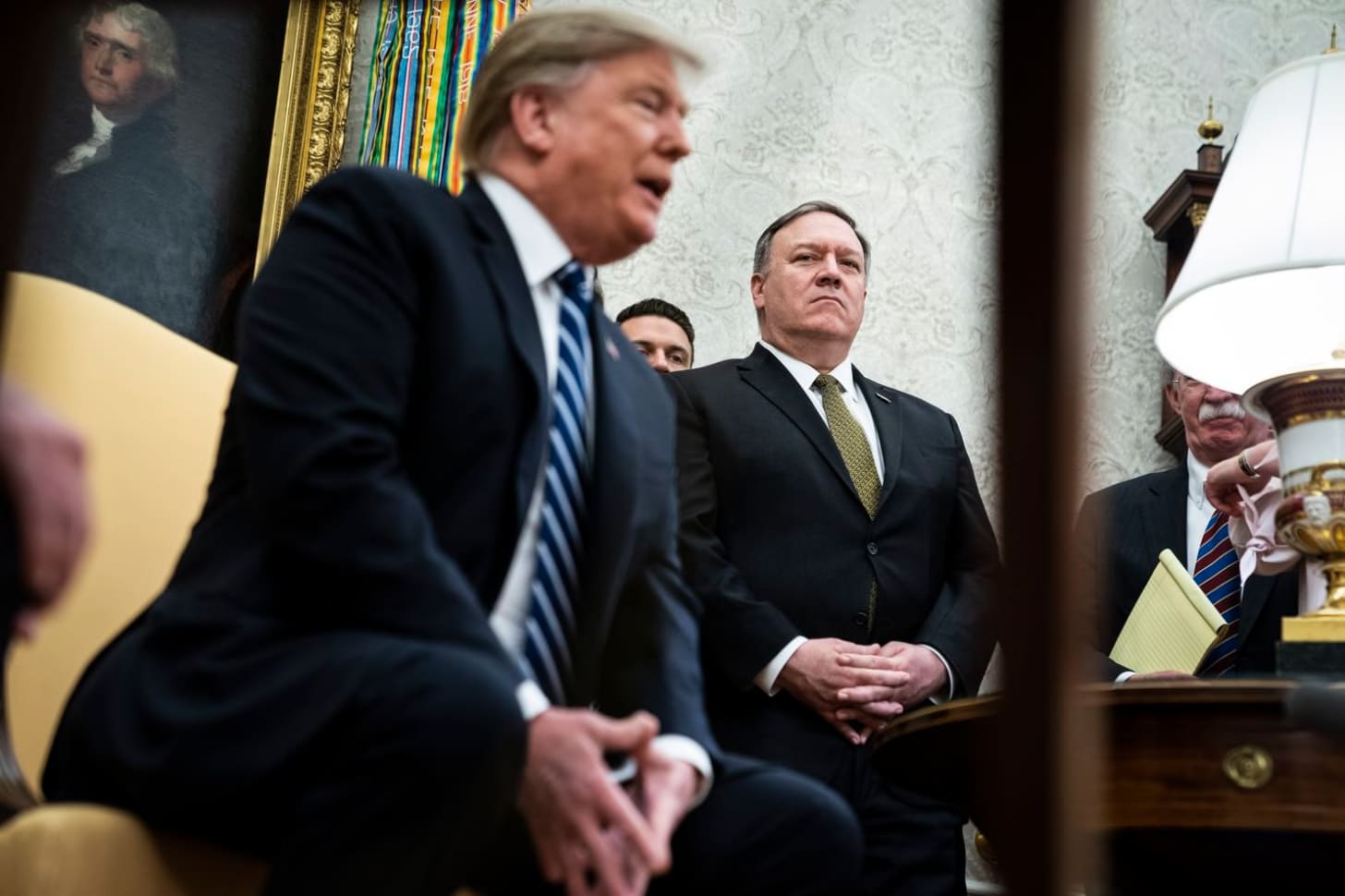
Mike Pompeo: Former Kansas congressman and CIA chief who currently serves as Secretary of State for Trump. Despite being present at the July 25 call between Trump and Ukraine, Pompeo made many attempts in the press to minimize his participation, but he recently confirmed on a trip to Europe that he was in the room during the call. Pompeo was subpoenaed by House committees on September 27 and responded by saying that he and members of the State Department were being intimidated, bullied and threatened by being asked to testify with such short notice. All members of the State Department who have been subpoenaed except Mike Pompeo have scheduled dates to appear before Congress and give testimony.
Pat Cipollone: Current White House counsel who was involved in the recommendation to Maguire that he should withhold the whistleblower complaint from Congress. Given that the whistleblower complaint also alleges that White House lawyers helped to hide Trump’s July 25 phone call with Ukraine by moving the transcript to a secretive server, Cipollone looks to be somehow involved with the cover-up.
Intelligence
Michael Atkinson: Independent Inspector General within the intelligence community, appointed by Trump, who first reviewed the whistleblower complaint and forwarded it to acting D.N.I. Joseph Maguire. Atkinson later advised Congress of the whistleblower complaint after informing them that it was initially being withheld from the House Intelligence committee despite his own determination that it was a “credible” complaint and represented an "urgent concern." He also revealed to the committee that he was at an "impasse" with Maguire over disclosure of the complaint and whether Congress should be informed about its existence or its contents.

Joseph Maguire: Retired vice admiral, former Navy SEAL and current acting director of national intelligence. Maguire has come under scrutiny for failing to disclose the whistleblower complaint to Congress pursuant to the law and past protocol for complaints of this nature. Following the resignation of former Director of National Intelligence Dan Coats, Maguire stepped into his role on August 12, just weeks after the July 25 call. Maguire claims he withheld the whistleblower complaint from Congress because his attorneys advised him that there were privileged conversations involved and that Trump was not part of the intelligence community. Maguire also went to both the White House and the Department of Justice for counsel on what to do, despite high ranking members of both of those agencies being implicated in the complaint itself. He testified last week before Congress to defend his failure to turn over the complaint, where he stated he had no reason to question the independent inspector general’s opinion that the complaint was credible.
The whistleblower: An anonymous U.S. government official, with access to officials in the White House, who wrote a complaint that detailed how Trump and Giuliani urged Ukrainian officials to investigate the Biden family and the White House’s alleged attempts to cover it up. The complaint also notes that multiple officials have concerns about Trump using public office to benefit personally and to seek personal political advantage with the assistance of a foreign power. These attempts at personal gain involve the July 25 phone conversation with President Zelensky of Ukraine and through the assistance of Giuliani and Attorney General Bill Bar. The complaint filed by the whistleblower also relays that White House staffers engaged in a cover-up to hide Trump’s phone call by moving a rough transcript of the conversation to a computer system reserved for highly classified material, that very few people can access.
House Democrats
Rep. Nancy Pelosi (D-Calif.): Pelosi is the current Speaker of the House of Representatives serving her second term as the top Democrat. Pelosi quickly moved to announce formal impeachment proceedings against Trump after the details of the Ukrainian June 25 phone call were released, citing the need to protect national security.
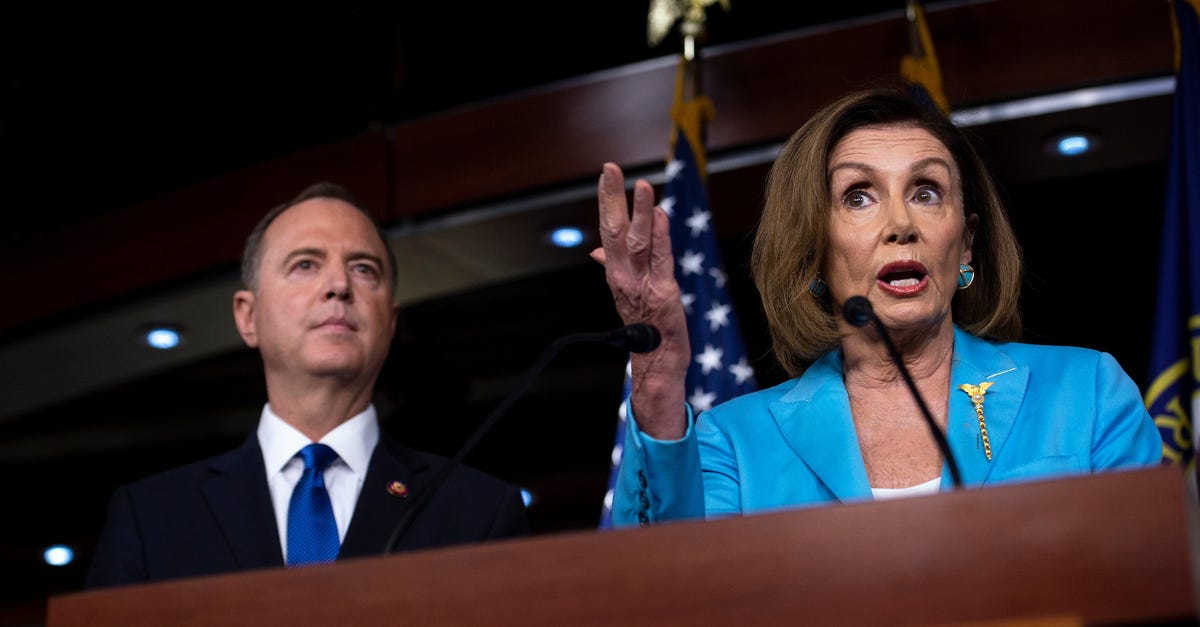
Rep. Adam B. Schiff (D-Calif.): A former federal prosecutor and current Chairman of the House Intelligence Committee. House Speaker Nancy Pelosi has asked that Schiff take over the investigation aspect of the impeachment inquiry and the inquiry into the whistleblower complaint. He initially learned from Atkinson of the existence of the whistleblower complaint. Trump released the military aid to Ukraine that he had been withholding shortly after Schiff sent a letter confirming that the Intelligence Committee would be investigating the whistleblower complaint.
If you like this piece and you want to help support independent journalism from a female perspective, you can forward this article to others or send a gift a subscription to someone else today.
Amee Vanderpool writes the “Shero” Newsletter and is an attorney, contributor to Playboy Magazine, analyst for BBC radio and Director of The Inanna Project. She can be reached at avanderpool@gmail.com or follow her on Twitter @girlsreallyrule.




Thank you! I am keeping this synopsis of the main players handy as the impeachment drama continues to unfold.